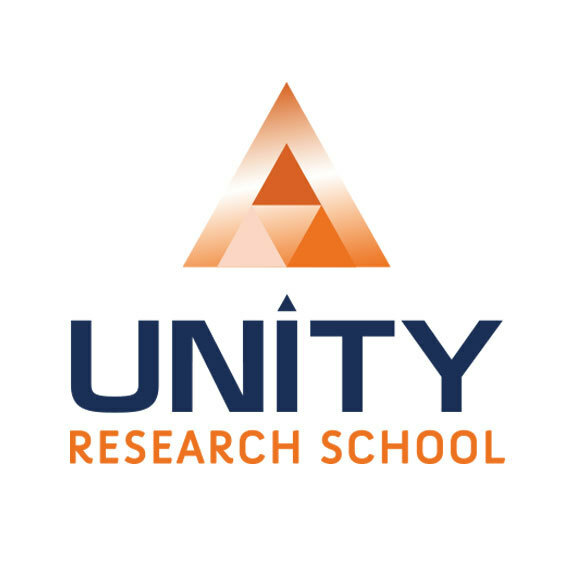
Research School Network: Building an army of expert reading practitioners Building an army of expert reading practitioners
—
Building an army of expert reading practitioners
Building an army of expert reading practitioners
Share on:

by Unity Research School
on the
An introduction from Marc Rowland, Assistant Director of Unity Research School
Struggling with reading has an obvious impact on academic inclusion. Struggling with reading means lessons are often something to get through, rather than participate in. But there are linked social costs too, particularly for pupils with limited financial and social capital. Struggling with reading may impact on:
- Teacher perceptions of pupils’ potential academic attainment
- A lack of background knowledge, impacting on confidence, motivation and engagement
- Social isolation – books, reading stories, broadening vistas, informing values make us interesting and interested
- Helps us to belong within social situations. Reading can bind friendships together – it is a social thing.
- Challenges bias, beliefs and assumptions.
We help pupils to thrive by giving teachers the skills, knowledge, capacity and support to help pupils to improve as learners. Lauren sets out how this has been done with secondary school teachers, to ensure EVERYONE is a teacher of reading.
Lauren Meadows, Curriculum Developer Adviser and literacy specialist at Unity Schools Partnership
‘Every teacher a teacher of Reading’ is a sentiment that is widely accepted in all educational establishments. But how do we build an army of practitioners who feel confident and equipped to make this the lived reality in our secondary and Special schools, where Reading instruction can feel like the complex preserve of our Primary counterparts?
The EEF’s Improving Literacy in Secondary Schools report specifically references the importance of teachers feeling confident to instruct Reading and the impact that this can have on their wider practice. It is unlikely that any secondary or Special school teacher will move through the course of a school day without encountering a student who has previously experienced reading failure. And this can manifest in a multitude of ways – including through attitude, behaviour, attendance, engagement or sense of self.
Training focused on teaching reading is likely to help secondary school teachers teach their subject more effectively.
At Unity Schools Partnership, we have made a commitment: our Reading instruction will reach all students, regardless of their background, starting points or potential barriers. This promise underpins our Getting Every Student Reading programme, and by every student, we mean EVERY student! This programme is built on the core evidence bases that tell us what effective literacy instruction looks like, all outlined in the above EEF report:
- Pure Phonics Subject Knowledge
- Prosodic Reading – building fluency
- Explicit Vocabulary Instruction
- Disciplinary Literacy
- Precision Questioning
Every student facing member of staff in our secondary and Special schools has received training on the evidence bases behind these principles and how they can be distilled directly into the classroom. In addition to high-quality intervention where it is needed, we ask all teachers to attend to reading in every classroom, in every lesson. This includes using simple strategies to create high-quality literacy interactions that encourage students to build their knowledge and independence as readers.
Beyond this, we have built these core pillars into our fully resourced Tutor Time Reading Programme. This guides teachers from all subject disciplines in how to execute high-quality reading instruction and allows them to embed this knowledge into their routine practice. Each lesson includes a highly structured approach to explicit vocabulary instruction, teacher-led prosodic reading opportunities and an exploration of key themes in the text, which builds pupils’ oracy skills while thinking deeply about what they have read. We have begun to see teachers translating these routines and principles into their teaching in their own subjects, including drawing on some of the pedagogical structures provided in the programme.

George Ellis, Director of SEND at Unity Schools Partnership adds ‘Reading training for our Special schools has raised expectations for young people with the most complex needs. Staff have a much greater awareness that all pupils can learn to read using the tried and tested techniques used by their mainstream colleagues. They have a much greater understanding of the principles which underpin reading and the pedagogy they are using. Ambition for our pupils in Special schools has always been high but with their new knowledge staff are even more ambitious for our children and young people’.
By moving through this project collectively, we have seen a huge shift in teachers’ confidence and engagement with evidence-led approaches to teaching reading across the curriculum and how best to support weaker readers in their wider studies. It has placed it firmly at the heart of all of our schools, with a deep sense of commitment from our whole community to ensuring that all pupils leave our schools with a strong grounding in literacy.
Coming soon:
27th February 4.00 – 5.00: Marc Rowland and Lauren Meadows, Free webinar – Exploring approaches to Reading in secondary schools. Register here
More from the Unity Research School
Show all news

Pupil Premium and SEND: learning without labels
Learning without labels
